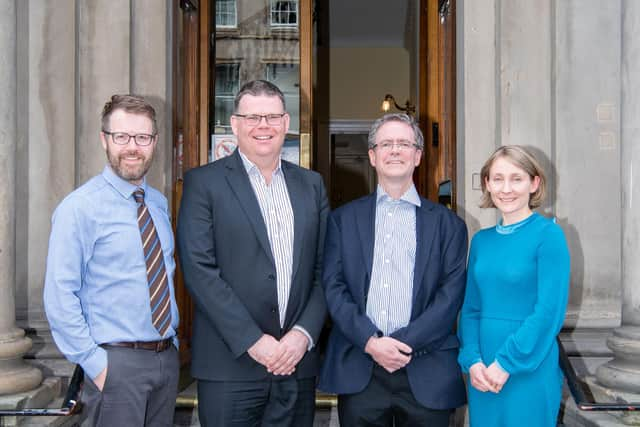It’s time we started debating the big issues responsibly under a new charter - Matthew Chrisman, Peter McColl, John O’Connor, and Alice König


In each of our personal and professional lives, there has been a direct link to constructive rhetoric, the development of persuasive arguments and the need to disagree well with other people we respect. As members of the Young Academy of Scotland (YAS), we think this need is something shared by society at large.
So, today we are asking the Party Leaders in Scotland and all MSPs to sign up to our Charter, with the aim of changing the culture of public discussion of contentious issues.
Advertisement
Hide AdAdvertisement
Hide AdYou can read and sign the charter here: https://www.youngacademyofscotland.org.uk/our-work/smarter/sign-the-charter-for-responsible-debate/
In the process of creating the Charter we have all learned an enormous amount from one another and all the people we have encountered. To launch this project, two years ago, we held a workshop where various people, including the then Presiding Officer of the Scottish Parliament, media hosts of popular news programmes, former MSPs, campaigners, and controversial academics helped us to create the Charter by suggesting principles. Our question to them was: what principles for public discussion of contentious issues would make it go better?
Out of this workshop we drafted principles, which we refined by workshopping at public events and festivals, where we were able to get feedback and public involvement in creating our Charter. Concepts that helped to inform us included the need for more popular participation in decision making, the problem of online bubbles, and the importance of ensuring that those who do not get their desired outcome are nonetheless able to feel comfortable with how it was made (what is sometimes called ‘loser’s consent’).
From our various backgrounds we recognise the value of more responsible debate to discussions ranging from immigration to gender. We made an open call for contributions from other YAS members, and their “think pieces” are included in the report we are launching this week. It considers a variety of topics and discusses the nature of debate and what we can do to be more responsible.
After months of feedback and refinement, our Charter has three themes and nine principles.
We believe that debate should be Informed. By this we mean that in debate we should aim for accuracy and base our contributions on evidence and experience; talk to people with different beliefs, experiences, perspectives and backgrounds; and be honest in how you communicate, and speak with conviction for what you believe.
We believe debate should be respectful. By which we mean we should listen carefully, open-mindedly, and with empathy; use emotional language judiciously, avoiding disrespectful or inflammatory language; and show appreciation for good points made by others, acknowledging when they change your mind.
We believe that debate should be inclusive by which we mean we should communicate in ways that unite rather than divide; we should try to address imbalances in power, knowledge and accessibility and we should seek to identify common ground and shared purpose.
Advertisement
Hide AdAdvertisement
Hide AdThe world faces many important challenges, from the Covid-19 pandemic to the climate emergency. We need to be able to reach agreement on the ways to tackle those challenges. We must not stop at simply agreeing a course of action. We must make sure that it is one that everyone can invest in. To do this, we need to be able to move from seeing debate as an arena for people with fixed opinions to engage in conflict, towards a process of formulating shared positions.
We see our work on this as the start of a conversation over what a Responsible Debate looks like, not the end. We are keen for people to use the principles, to illustrate them, to play with them, stress test them and come back to us with suggestions. Above all, we want people to talk with each other about them - debating what responsible debate involves is the best way to do it.
Matthew Chrisman, Peter McColl, John O’Connor, and Alice König for Young Academy of Scotland
Comments
Want to join the conversation? Please or to comment on this article.